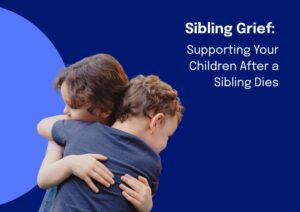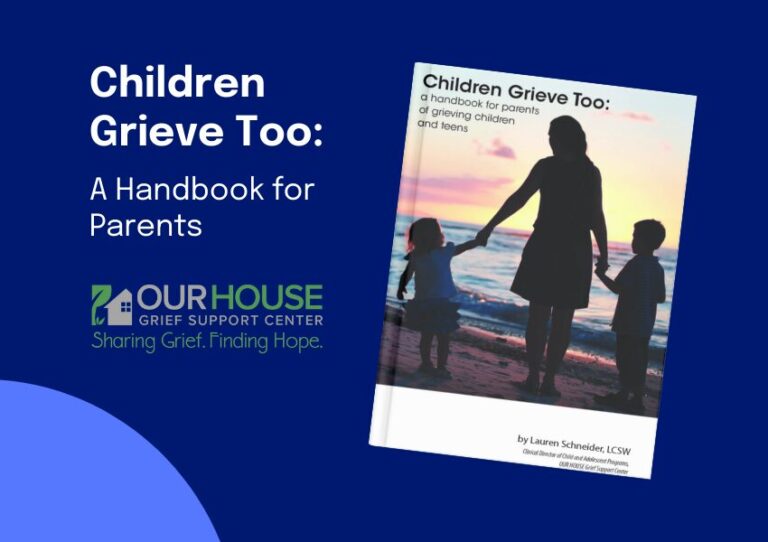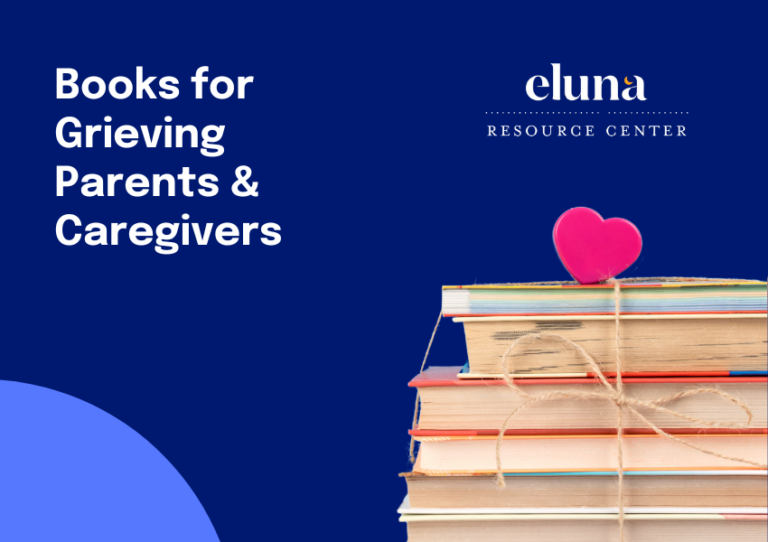Sibling Grief: Supporting Your Children After a Sibling Dies
 My sister died of cancer just before my 16th birthday. She was 10 years older than me, but we were best friends and did everything together. After she died, I felt angry and helpless, like no one else could understand what I was going through. Part of me was missing. The sibling bond is unique, and like any family relationship, can sometimes involve complicated feelings.
My sister died of cancer just before my 16th birthday. She was 10 years older than me, but we were best friends and did everything together. After she died, I felt angry and helpless, like no one else could understand what I was going through. Part of me was missing. The sibling bond is unique, and like any family relationship, can sometimes involve complicated feelings.
As they grow, siblings share experiences, milestones, and expectations that they have a friend for life. When one dies, the surviving siblings may withdraw, become anxious, or start acting out (2). Surviving children may also feel a sense of guilt, maybe for wishing they got more attention if the other child was sick for a long time. Perhaps they regret something they said or did. It’s the nature of siblings to have fights. If your child is a teenager, they may have spent more time with their friends than their sibling. There will be many layers of processing grief, and it can be a lifelong process.
The demands of grieving as a caregiver can be hard. You may feel stuck between balancing your own grief and still supporting your other children. Siblings are sometimes called the forgotten mourners because they get less attention and support than other family members. If the child had a prolonged illness, the siblings might have felt overlooked even before the death (1;2).
I reached out to families who lost their children and talked to grief professionals in the Camp Erin network. Here’s the advice they want to share with other parents and caregivers:
-
Don’t be afraid to talk about the person who died.
- A mother who lost her 8-year-old told me that if she could change anything, she would talk more openly about her daughter who died. She worried that talking to her sons would make them upset, but now she realizes how much they needed her to ask how they were doing. When parents and children talk openly about death, they develop healthy coping skills together (2).
- “I am the type of person that puts [feelings] on a shelf or hides them instead of dealing with them. The problem is that the stuff on that shelf needs to be dusted every once in a while. If I would just deal with the stuff then, maybe they wouldn’t need dusting.” -Camp Erin Parent
- Your family can form a communication plan or signal to let others know when you are ready to talk. Maybe after school, your child needs time alone to decompress before you ask how they are. They might feel more comfortable writing out their feelings through text messaging, and that’s how you can check in with each other. Every child and family is different, so it may take trial and error to figure out what works best for you.
- “I think I didn’t ask them enough about their emotions because I know I wouldn’t have been able to take on their pain along with mine.” -Camp Erin Parent
- It can be difficult and may bring up many emotions, but sharing memories is a great way to remember the person who died.
-
Let your children know that they can rely on you and other trusted adults for support.
- Since siblings are sometimes overlooked, you can express that you’re there for them. They need you but may be afraid to upset you. You don’t have to put on a brave face all the time. By being emotionally present with your children, you support their grieving and let them know they haven’t lost you, too (1).
- “I was so afraid that it would make them sad, so I never asked them how they were feeling or if they wanted to talk about her. We talk about her more now, but I wish I would have just sat them down and said, ‘I’m trying really hard to be strong, but it’s hard.'” -Camp Erin Parent
- Your self-care is essential, so you have the energy to help your children throughout this process. Teachers, coaches, or family friends can step in and help support your child if they seem to push their grief aside at home. While some children feel comfortable being vulnerable with family members, others prefer opening up to others who are not grieving.
-
Find support communities for both yourself and your children.
- Losing a sibling at a young age can feel very isolating when others don’t understand. Grieving siblings are at a higher risk for mental health issues than their peers (1), so finding outlets for expression helps their wellbeing.
- “I think if I had to do it over, I would have been more open about how hard it was to try and act like I was doing okay.” -Camp Erin Parent
- It can be challenging to find time and space to take care of yourself. By being honest with when you need a break, you can better support your children and yourself.
-
Recognize that life will be different, but find ways to remember the person in your routines.
- Life will change after the child dies, and it is okay to shift how you do things. One year, my parents visited me in Spain on my sister’s birthday. Even though we missed her and wished she could have been alive to join us, we used the day to honor her life and do something new for the first time. Your family can discover new ways to have continuing bonds and keep a connection with the person who died.
- If you decide to sort through the items of your child who died, include your other kids in this process. Certain things may be important to them but not to you, and vice versa. Allow the children to have a voice in the process, and let that be an opportunity to share memories as you go through things.
Grief journeys look different for everyone. Grief is not something you need to fix, but it is now a part of your life that you can learn to move forward with.
Questions to reflect on:
- What are two ways I can take care of myself today?
- How can I share some of my grief feelings with my children?
- What’s something we can do as a family to remember the person who died?
Helpful Parenting Resources
- For caregivers: Parenting While Grieving: A Survival Guide from What’s Your Grief
- Article “Three Helpful Tips for Grieving While Parenting” from The Wendt Center
Children’s books about sibling loss:
Preschoolers: Where’s Jess? By Marvin Johnson
Elementary schoolers:
- A Birthday Present for Daniel: A Child’s Story of Loss by Juliet Rothman
- Lost and Found: Remembering a Sister by Ellen Yeomans
- Since My Brother Died/Desde Que Murio Mi Hermano by Marisol Munoz-Kiehne
Teenagers:
- Grieving for the Sibling You Lost: A Teen’s Guide to Coping with Grief and Finding Meaning After Loss by Erica Goldblatt Hyatt
- You Are Not Alone: Stories by Young Teens Who Have Experienced the Death of a Sibling by Brooke’s Place
General grief books for children:
- The Memory Box: A Book About Grief by Joanna Rowland
- Why Do I Feel So Sad?: A Grief Book for Children by Tracy Lambert-Prater, LPC
Sources:
-
Dickens, N. (2014). Prevalence of complicated grief and posttraumatic stress disorder in children and adolescents following sibling death. The Family Journal, 22(1), 119-126. https://doi-org.mylibrary.wilmu.edu/10.1177/1066480713505066
-
Howard Sharp, K. M., Meadows, E. A., Keim, M. C., Winning, A. M., Barrera, M., Gilmer, M. J. Foster Akard, T., Compas, B. E., Fairclough, D. L., Davies, B., Hogan, N., Vannatta, K., & Gerhardt, C. A. (2020). The influence of parent distress and parenting on bereaved siblings’ externalizing problems. Journal of Child and Family Studies, 29, 1081-1093. https://doi.org/10.1007/s10826-019-01640-0

